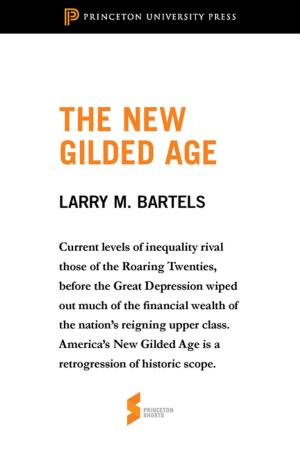The Star and the Stripes
A History of the Foreign Policies of American Jews
Nonfiction, Social & Cultural Studies, Political Science, Government, Civics, Social Science| Author: | Michael N. Barnett | ISBN: | 9781400880607 |
| Publisher: | Princeton University Press | Publication: | March 15, 2016 |
| Imprint: | Princeton University Press | Language: | English |
| Author: | Michael N. Barnett |
| ISBN: | 9781400880607 |
| Publisher: | Princeton University Press |
| Publication: | March 15, 2016 |
| Imprint: | Princeton University Press |
| Language: | English |
How do American Jews envision their role in the world? Are they tribal—a people whose obligations extend solely to their own? Or are they prophetic—a light unto nations, working to repair the world? The Star and the Stripes is an original, provocative interpretation of the effects of these worldviews on the foreign policy beliefs of American Jews since the nineteenth century. Michael Barnett argues that it all begins with the political identity of American Jews. As Jews, they are committed to their people's survival. As Americans, they identify with, and believe their survival depends on, the American principles of liberalism, religious freedom, and pluralism. This identity and search for inclusion form a political theology of prophetic Judaism that emphasizes the historic mission of Jews to help create a world of peace and justice.
The political theology of prophetic Judaism accounts for two enduring features of the foreign policy beliefs of American Jews. They exhibit a cosmopolitan sensibility, advocating on behalf of human rights, humanitarianism, and international law and organizations. They also are suspicious of nationalism—including their own. Contrary to the conventional wisdom that American Jews are natural-born Jewish nationalists, Barnett charts a long history of ambivalence; this ambivalence connects their early rejection of Zionism with the current debate regarding their attachment to Israel. And, Barnett contends, this growing ambivalence also explains the rising popularity of humanitarian and social justice movements among American Jews.
Rooted in the understanding of how history shapes a political community's sense of the world, The Star and the Stripes is a bold reading of the past, present, and possible future foreign policies of American Jews.
How do American Jews envision their role in the world? Are they tribal—a people whose obligations extend solely to their own? Or are they prophetic—a light unto nations, working to repair the world? The Star and the Stripes is an original, provocative interpretation of the effects of these worldviews on the foreign policy beliefs of American Jews since the nineteenth century. Michael Barnett argues that it all begins with the political identity of American Jews. As Jews, they are committed to their people's survival. As Americans, they identify with, and believe their survival depends on, the American principles of liberalism, religious freedom, and pluralism. This identity and search for inclusion form a political theology of prophetic Judaism that emphasizes the historic mission of Jews to help create a world of peace and justice.
The political theology of prophetic Judaism accounts for two enduring features of the foreign policy beliefs of American Jews. They exhibit a cosmopolitan sensibility, advocating on behalf of human rights, humanitarianism, and international law and organizations. They also are suspicious of nationalism—including their own. Contrary to the conventional wisdom that American Jews are natural-born Jewish nationalists, Barnett charts a long history of ambivalence; this ambivalence connects their early rejection of Zionism with the current debate regarding their attachment to Israel. And, Barnett contends, this growing ambivalence also explains the rising popularity of humanitarian and social justice movements among American Jews.
Rooted in the understanding of how history shapes a political community's sense of the world, The Star and the Stripes is a bold reading of the past, present, and possible future foreign policies of American Jews.















